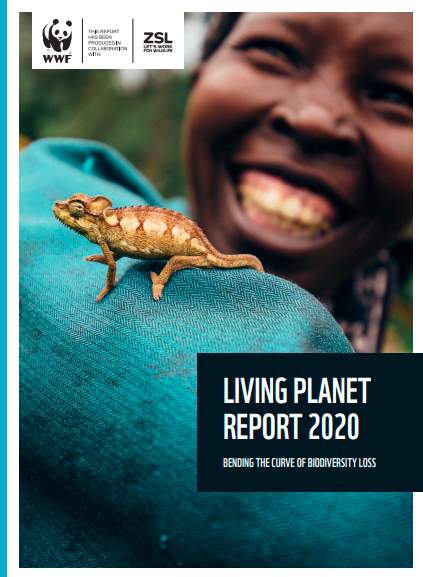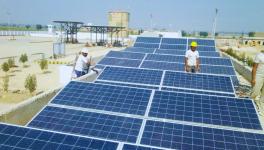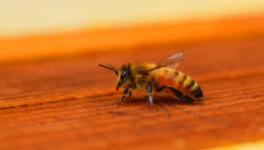WWF Report Says Human Activity has Resulted in 68% Decline in Species Population Between 1970 and 2016

Image Courtesy: WWF.
The human need for ravaging natural resources has brought the Earth’s climatic condition to a tipping point. According to a study by the WWF, close to 70% of other species have registered a decline between 1970 and 2016.
Global warming, rising sea levels and the melting of the ice sheet at Antarctica are all related to a change in Earth’s climate, which is primarily due to human activity. In many cases, scientists have even showed that certain changes have reached a point of no return, implying that even if human beings stop messing with nature overnight, some systemic changes are impossible to reverse.
The WWF (World Wildlife Fund) has released an alarming report titled ‘Living Planet Report 2020’. According to it – between 1970 and 2016 – there was an average decline of 68% in the world’s species. Among 21,000 monitored populations of mammals, fish, reptiles, amphibians, 4400 species have declined in the said period.
More so, species in Latin America, the Caribbean and other global fresh water habitats have been impacted disproportionately, with the average decline in specie found to be 94% and 84% respectively.
Species diversity is a crucial indicator of the health of planet Earth, and the drastic decline in biodiversity and species is indicative of the alarming condition of a fundamentally broken relationship between humans and nature, also signalling a catastrophe in the future.
The ongoing COVID-19 pandemic has already sent alarm bells ringing, and is a fundamental demonstration of a broken relationship between human beings and nature. WWF CEO Carter Roberts reportedly said that the “report reminds us that we destroy the planet at our peril—because it is our home. As humanity’s footprint expands into once-wild places, we’re devastating species populations. But we’re also exacerbating climate change and increasing the risk of zoonotic diseases like COVID-19. We cannot shield humanity from the impacts of environmental destruction. It’s time to restore our broken relationship with nature for the benefit of species and people alike.”
Significantly, the WWF report pointed out that the development of human life style over the past 50 years is the primary force that has created a rupture in the world’s biodiversity. The explosive growth of human consumption, global trade and most importantly, urbanisation, has resulted in more of the Earth’s resources onto human platters. This overuse of natural resources have impacted biodiversity significantly.
The report mentioned that an important factor which has driven the loss in biodiversity is the significant change in land-use patterns. People have converted more and more native habitats of a plethora of species – forests, grassland, mangroves – into agricultural land.
The report pointed out that in the loss of biodiversity we have witnessed as yet has not been as a result of climate change being the primary driving force. Yet, in the coming times, it is expected to take over the driving seat in biodiversity destruction and species’ loss.
It implies that we have now been trapped in a vicious circle: First, we created a disturbance in the fragile natural balance by extravagant extraction of natural resources, creating climate change. With the disturbance continuing unabated, humanity changed the species profile of the planet, and within few years climate change is expected to have double the impact on biodiversity and species decline.
Get the latest reports & analysis with people's perspective on Protests, movements & deep analytical videos, discussions of the current affairs in your Telegram app. Subscribe to NewsClick's Telegram channel & get Real-Time updates on stories, as they get published on our website.
























